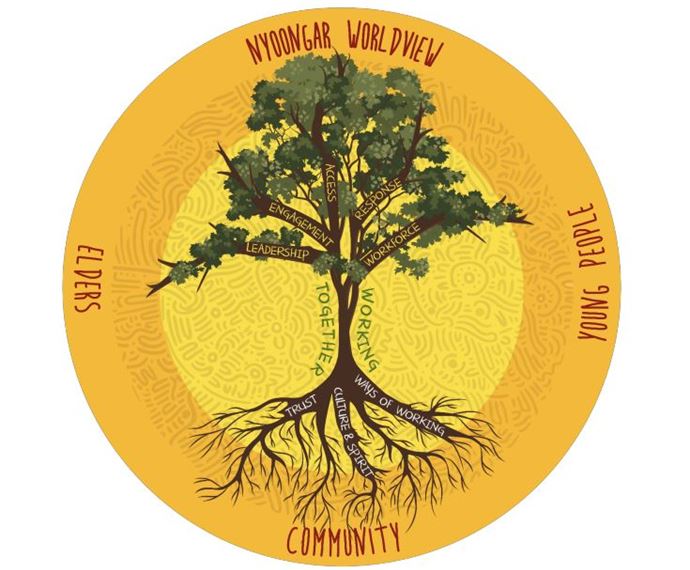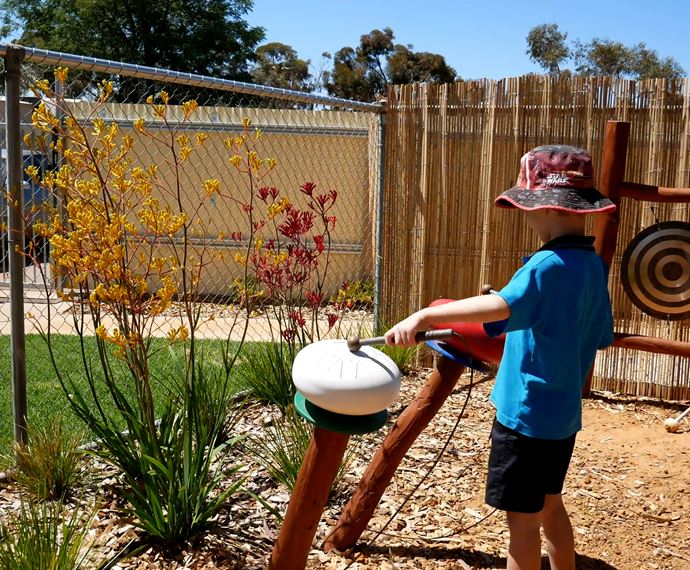Supporting road safety for children
First established in 1989, Constable Care Foundation (Constable Care) was originally an activity of community policing before becoming its own entity following a community policing restructure in 1998. Its primary activity involves providing educational programs to primary and secondary school aged children, addressing key social issues around personal safety, mental health, and community responsibility. Since 1999, Lotterywest has provided 10 grants totalling $2M to the organisation.
Through a grant towards road safety, Constable Care was able to construct a dedicated road safety school in Maylands, to provide an experiential environment to enhance learning and facilitate behavioural change in children.
To construct a dedicated Road Safety School in Maylands, to provide an experiential environment to enhance learning and facilitate behavioural change for children.
Constable Care Foundation
1/1/2017
$1,700,000
Lotterywest
$950,000
State-wide
Children (12 years and under), Young people (aged 13-17)
- Significant increase in road safety knowledge in participants attending the sessions.
- Increased awareness of the Constable Care brand and the organisation's rad safety programs for children.
- No drop off in school and community use in the first four years of operations, demonstrating the school is an attractive, state of the art facility.
- Having a strong project management and sustainable business plan helped Constable Care deliver the project on-time and within budget.
- Showing that the experiential learning model produced effective results which helped the organisation to secure additional funding to support ongoing development.
- Embracing the possibilities offered by new technologies made the experience more engaging for students and created learning pathways for those who could not attend in person.
- Communicating and engaging earlier with nearby residents about the reason behind the removal of some trees could have made the process smoother.
- Being clear around which government agency had jurisdiction over approving the design and construction of the project which resulted in some delays.
![A7R02243[1]](/media/wwvcasym/a7r02243-1-resized.jpg?anchor=center&mode=crop&width=1468&height=577&rnd=133045363314000000&quality=80)
Opportunity
Children are the most at-risk road users, since they are not easily seen, have difficulty seeing around parked cars, behave differently when they are out with other children, and require special restraints when traveling in a vehicle [1].
Research in WA documented 14,290 Emergency Department admissions of children over a 10-year period: 38% roller-skates/skateboards/scooters, 34% cyclists and 5% pedestrians [2]. Between 2016 and 2020, 647 children aged between 0 and 16 years were killed or seriously injured on WA roads, with 26% of them being pedestrians [1].
To remain safe in everyday activities, such as crossing the road, children need to learn how to navigate surroundings and evaluate risk. Building the following cognitive skills will assist in this part of childhood development [3]:
- Ability to process information.
- Strong attention, decision-making and reasoning skills.
- Knowledge of road rules.
With promising research around improving children’s risk-assessment capabilities through practical training, virtual games, and simulating activities such as road crossings [4], Constable Care saw the opportunity to develop a dedicated road safety school.
Approach
Constable Care used the grant to establish a road safety school in Maylands, providing safety education for children. Additional funding was also provided by Bendigo Bank, Quadrant Energy and Arc Infrastructure.
The road safety school offers community groups and families a learning environment that builds knowledge, awareness, and behaviour change around safe shared roads, public transport, and footpath use. The learning program complements and reinforces previously existing best-practice education in schools and encourages repeat visits that cater to changing learning needs as children mature.
There are three key elements to the Road Safety School:
- An interactive classroom environment.
- An open staging area where children can be shown the correct way to use equipment, gain an understanding of bike safety and maintenance, and be matched to appropriately adjusted bicycles.
- An environment laid out to-scale, representing all the major aspects of a typical urban road network, including interactive augmented reality learning experiences.
The road safety school caters to school groups of up to 60 children, including the public, and provides school holiday programs, and after-school and weekend sessions.
Impacts and outcomes
To determine the impact and effectiveness of the road safety school, Constable Care continually evaluated the program, and found that:
- More than 24,000 children visited the school between October 2017 and November 2021.
- It operated at over 70% of total capacity all year-round.
- There has been no drop-off in school and community use in the four years since its opening, demonstrating that it remains an attractive, state of the art facility.
An evaluation undertaken in 2021 based on 256 Year 4 and 5 students from five schools, found significant change in knowledge in road safety as a result of attending the sessions. Students also reported the excursion to be more beneficial than they expected (pre 53%, up to 76% post).
Since opening, a significant increase in the Constable Care brand has been recorded anecdotally, people are also more aware of the organisation’s road safety programs for children. This outcome is due primarily to the highly visible location of the school on Guildford Road in Maylands, with around 36,000 drivers passing the site each weekday, and the regular use of the site by the State Government as a backdrop for road safety media events.
![A7R02221[1]](/media/5r5jnw4c/a7r02221-1-resized.jpg?center=0.686187091104522,0.49362583551416095&mode=crop&width=1468&height=577&rnd=133051247214830000&quality=80)
![A7R02321[1]](/media/ge1exak1/a7r02321-1-resized.jpg?center=0.66923250932485712,0.512270983233048&mode=crop&width=705&height=705&rnd=133051247369670000&quality=80)
![A7R02166[1]](/media/2qqjun2r/a7r02166-1-resized.jpg?anchor=center&mode=crop&width=705&height=705&rnd=133045363150500000&quality=80)
What worked
Strong project management and a sustainable business plan
The capital construction of the road safety school was delivered on-time and within budget. This was primarily due to sound cost control by the project group and a strong commitment from all external sponsors and partners to build at-cost or donate services and infrastructure. Integrated services company Downer’s road network management and maintenance business, Main Roads WA, Jaxon Construction, Arc Infrastructure, and many other contractors provided open book quoting or donated equipment. As a result, the $1.7 million recorded cost of construction was estimated to have covered approximately $2.5 million worth of real-world costs.
The service fee and corporate sponsorships funded the ongoing activities of the road safety school. This was a successful formula, as small surpluses were achieved in the operating budget each year, ensuring the road safety school remains sustainable into the future.
Showing it works provides new opportunities
The high-profile nature of the road safety school has attracted additional funding, which allows for ongoing development of the site and the educational experiences. Since opening, funding has been sourced through new partnerships with the Road Safety Commission, Western Power, and the WA Department of Health, delivering additional onsite infrastructure and augmented reality learning experiences on driveway reversing and footpath cycling safety, discarded needles and downed power lines.
The road safety school has attracted new users and partnerships since opening, including:
- The Education Department to train physical education teachers in cycling.
- Disability agencies to acclimatise and train their clients on a one-to-one basis.
- WestCycle to use the centre in the afternoons as the venue for children’s small group bike skills education and training.
Embracing the potential of new technologies
The road safety school’s augmented reality learning tool has been effective in enhancing student learning. Due to its success, a classroom-based augmented reality app has been developed for schools that cannot attend in person.
Key challenges
Communication and early engagement with nearby residents on building the Road Safety School
During the construction process, there were objections from nearby residents on the removal of some trees from the site. The trees were removed following professional advice received (poisonous berries, dropped branches, etc.), however, these reasons could have been better communicated. The issue was resolved when street tree plantings were donated to the City of Bayswater for planting around site.
Clarifying planning permission processes to avoid delays
It wasn’t initially clear on who had jurisdiction over approving the design and construction of the project, given both State and local government interests in the site. This delayed the initial construction start date, though not the construction time itself. Constable Care could have avoided this delay if it had known about planning permission processes.
REFERENCES
- Road Safety Commission. Child safety on WA roads. 2021 1 October 2021 [cited 2021 19 November ]; Available from: https://www.wa.gov.au/organisation/road-safety-commission/child-safety-wa-roads.
- Waddell, G., J. McKenna, and D. Skarin, Kidsafe WA Childhood Injury Research Report: Road Injuries. 2017, Kidsafe WA: Perth.
- Hobday, M. and L. Meuleners, Child and adolescent pedestrians and cyclists in Western Australia: how safe are they? 2018, Curtin-Monash Accident Research Centre (C-MARC): Perth.
- Purcell, C. and A.R. Romijn, Teaching Children Road Safety Using a Simulated Environment. Journal of Education and Educational Development, 2020. 7(1): p. 44-54.
Learn about wellbeing
Understand how your community is going to help you to better target and plan your project.
Ready to plan your project?
Understand your vision, plan your impact and report on the outcomes of your project with three easy interactive tools in the Community Impact Planner.
Acknowledgement of Country
The Western Australian Community Impact Hub acknowledges and pays respect to the Traditional Owners of the land on which we are based, the Whadjuk people of the Noongar Nation and extends that respect to all the Traditional Owners and Elders of this country. We recognise the significant importance of their cultural heritage, values and beliefs and how these contribute to the positive health and wellbeing of the whole community.

![IMG 8451[1]](/media/yhnbmsph/img_8451-1-resized.jpg?anchor=center&mode=crop&width=690&height=570&rnd=133045355965530000&quality=80)
![035 Web[1]](/media/znvf1qaa/035-web-1.jpg?anchor=center&mode=crop&width=690&height=570&rnd=133045228680670000&quality=80)


